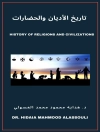Eusebius of Caesarea’s ‘The Ecclesiastical History’ serves as a pivotal work in early Christian literature, chronicling the development of the Church from the apostolic age to the early 4th century. Eusebius employs a meticulous historical style, combining narrative with theological insight, not only documenting the lives of bishops and the spread of Christianity but also addressing the challenges faced by the early believers, including persecution and heresies. His integration of biblical texts and contemporary historical accounts creates a narrative rich in depth and authenticity, positioning this work as a fundamental resource for understanding the evolution of Christian doctrine and practice within its historical context. Eusebius, often regarded as the ‘Father of Church History, ‘ was a bishop and scholar whose extensive theological training and experiences in a religiously turbulent era informed his writings. Living during the reign of Emperor Constantine, Eusebius had unprecedented access to ecclesiastical activities and the Christian community’s response to Roman authority. His interest in documenting the faith’s history stems from his desire to provide a foundation for future generations and to affirm the legitimacy of Christianity as a faith in dialogue with the broader historical narrative. For scholars, theologians, and general readers alike, ‘The Ecclesiastical History’ is indispensable for comprehending the complexities of the early Church’s formation. Eusebius’s narrative serves not only as a historical account but also as a testament to the resilience of faith in the face of adversity. This book is a must-read for anyone seeking to grasp the intricate interplay between early Christianity and the socio-political landscape of the time.
Giới thiệu về tác giả
Eusebius of Caesarea, also known as Eusebius Pamphili, was a historian, exegete, and Christian polemicist of Greek descent who lived from approximately 260 to 339 CE. He became the bishop of Caesarea Maritima about 314 CE. Eusebius is best known for his work ‘The Ecclesiastical History’ (‘Historia Ecclesiastica’), a cornerstone in Christian historiography which covers the history of the Church from the Apostles to his own time. This work is notable for preserving the records of early Christianity, providing subsequent generations with invaluable information on the Church’s development and the historical context of the period. His literary style in ‘The Ecclesiastical History’ melds historical writing with theological discussion, aiming to defend the Christian faith while chronicling its establishment and challenges throughout the Roman Empire. Eusebius’s scholarship is a critical source for the understanding of the first three centuries of Christian history, and his historical method has earned both praise and critical scrutiny. His reliance on earlier sources and efforts to quote them verbatim whenever possible makes his work an essential repository of early Christian documents. Nonetheless, the accuracy of some of his reports has been questioned, as Eusebius often presented history in a way that depicted the Church and its orthodoxy favorably. As one of the most significant early Christian writers, Eusebius’s legacy extends far beyond ‘The Ecclesiastical History’, influencing both historical scholarship and ecclesiastical thought.




